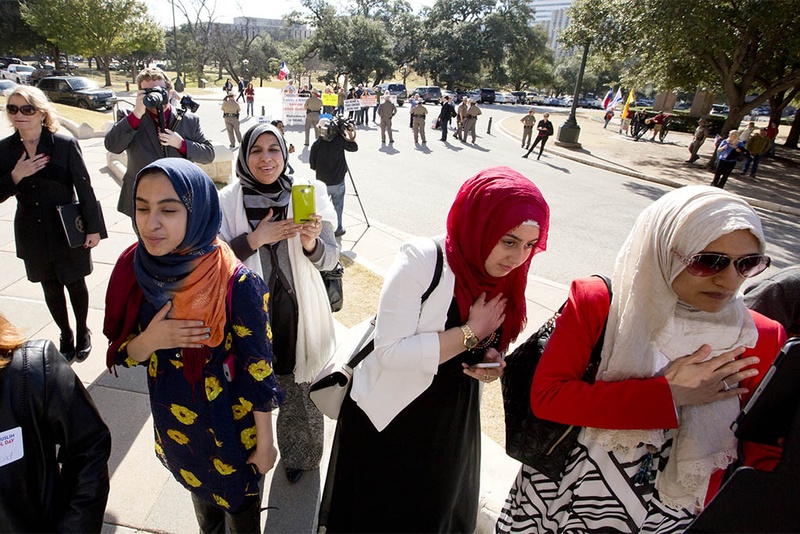Hostages In Gaza: The Protracted Nightmare For Their Families

Table of Contents
The Human Cost: Emotional and Psychological Toll on Families
The human cost of the hostage crisis in Gaza is immeasurable, extending far beyond the hostages themselves. Families endure a relentless barrage of emotional and psychological distress, marked by profound uncertainty and fear. The psychological trauma inflicted on these families is severe and long-lasting.
- The constant fear and uncertainty: Not knowing the whereabouts or well-being of a loved one creates a state of perpetual anxiety. Families live with the constant dread of potential harm or violence.
- Emotional toll on family members: The impact extends to every member of the family – spouses, children, parents, and siblings all suffer intense grief, anxiety, and depression. Children, in particular, are vulnerable to significant psychological damage.
- Lack of reliable information and communication: The absence of clear communication from authorities or captors leaves families in a state of informational vacuum, fueling speculation and increasing their distress.
- Psychological impact of prolonged separation: The prolonged separation from loved ones exacerbates the emotional suffering, leading to feelings of isolation, helplessness, and despair. The threat of violence further intensifies the trauma.
- Need for comprehensive mental health support: Affected families urgently require access to specialized mental health services, including trauma counseling, grief support, and family therapy. Without adequate support, the long-term consequences can be devastating.
Families often face additional burdens, including significant financial strain due to lost income, social isolation resulting from their ordeal, and the immense challenge of maintaining some semblance of normalcy amidst the crisis. Many describe feeling abandoned and forgotten by the world. The stories of these families underscore the urgent need for targeted mental health support and resources to help them cope with this protracted trauma. The voices of these families need to be heard, and their suffering acknowledged.
The Political Landscape: Obstacles to Resolution and Prisoner Exchanges
Negotiating the release of hostages in Gaza is fraught with complexities, deeply entangled in the broader political landscape of the Israeli-Palestinian conflict. The path to resolution is paved with obstacles, hindering progress and prolonging the suffering of families.
- Complexities of prisoner release negotiations: Negotiations are hampered by a lack of trust between the involved parties, often complicated by ongoing hostilities and shifting political dynamics.
- Role of international actors in mediation: International actors, such as the UN and other mediating bodies, play a vital role in facilitating dialogue and fostering a conducive environment for negotiations. However, their influence is often limited by the political realities on the ground.
- Political obstacles hindering negotiations: Deep-seated political divisions, conflicting national interests, and the lack of a unified negotiating position among stakeholders create significant hurdles to a swift resolution.
- Potential for leverage and negotiation strategies: Successful prisoner exchanges often depend on effective strategies that leverage various political and diplomatic tools. This may involve concessions or compromises that are ethically challenging.
- Ethical considerations surrounding prisoner exchanges: The ethical implications of potential prisoner exchanges are considerable, requiring careful consideration of humanitarian principles and the potential for unintended consequences.
The history of prisoner exchanges in the region is marked by both success and failure. Examining past attempts, both successful and unsuccessful, can provide valuable insights into the factors that contribute to successful outcomes and the obstacles that must be overcome. Understanding the dynamics of these exchanges is crucial to developing effective strategies for resolving the current hostage crisis.
International Humanitarian Efforts and Advocacy for Hostage Release
The international community plays a critical role in responding to the humanitarian crisis caused by the hostages in Gaza. Various organizations and advocacy groups are working tirelessly to secure the release of the hostages and provide support to their families.
- Role of international organizations: Organizations like the International Committee of the Red Cross (ICRC) and the United Nations (UN) provide vital humanitarian assistance, including monitoring the situation, facilitating communication, and advocating for the safe release of hostages.
- Efforts of advocacy groups and human rights organizations: Numerous human rights organizations and advocacy groups actively campaign for the release of hostages, raising awareness about their plight and pressuring involved parties to prioritize their safe return.
- Impact of media coverage and public pressure: Media coverage and public pressure can significantly influence the course of negotiations, putting increased pressure on authorities to address the crisis.
- Strategies employed by advocacy groups: Advocacy groups utilize a range of strategies, including public awareness campaigns, lobbying efforts, and appeals to international bodies to raise awareness and advocate for a swift resolution.
- Limitations and challenges faced by international humanitarian actors: International humanitarian actors face numerous limitations, including restricted access, security concerns, and the complex political environment.
Specific examples of successful advocacy campaigns related to hostage releases in similar situations highlight the potential impact of well-coordinated international efforts. Highlighting these successes can inspire hope and demonstrate the effectiveness of collective action.
The Long Road to Justice and Healing: The Aftermath for Families
Even after the release of hostages, the journey to healing and recovery is long and arduous for both the hostages and their families. Addressing the long-term consequences is crucial to ensuring a complete and just resolution.
- Post-release trauma: Released hostages often suffer from post-traumatic stress disorder (PTSD), anxiety, depression, and other psychological challenges, requiring specialized therapeutic intervention.
- Need for long-term rehabilitation and mental health services: Comprehensive and sustained mental health services are essential for both hostages and their families to address the trauma and facilitate their recovery.
- Potential for financial compensation and other forms of support: Financial compensation and other forms of support, such as social services and legal assistance, can help families rebuild their lives.
- Importance of community support and social reintegration: Community support and social reintegration programs are vital to help hostages and their families re-establish their lives and reintegrate into society.
- Long-term impact on the hostages’ lives and their families: The long-term impact of hostage crises can be profound and far-reaching, affecting various aspects of their lives, including their physical and mental health, social relationships, and economic stability.
Providing access to comprehensive rehabilitation services, including psychological support, financial aid, and social reintegration programs, is essential to ensure that hostages and their families receive the necessary support to heal and rebuild their lives.
Conclusion
The plight of families with hostages in Gaza underscores the devastating human cost of prolonged conflict. The emotional and psychological toll, coupled with the complex political obstacles to resolution, demands urgent attention. International humanitarian efforts and effective advocacy are crucial to securing the release of all hostages and ensuring that their families receive the necessary support. Continued pressure and a commitment to finding a peaceful resolution are vital to ending this protracted nightmare. We must all strive for a just and lasting solution to ensure that no family ever again faces the anguish of having loved ones held hostage in Gaza. Let's all demand action to bring an end to the suffering of families with hostages in Gaza, and work towards a future where such tragedies are prevented. We must advocate for the immediate release of all Gaza hostages and support the healing process for their families.

Featured Posts
-
 Post Quantum Cryptography Market To Reach Billions By 2030 New Algorithmic Standards And Migration
May 13, 2025
Post Quantum Cryptography Market To Reach Billions By 2030 New Algorithmic Standards And Migration
May 13, 2025 -
 School Stabbing Victim 15 Laid To Rest
May 13, 2025
School Stabbing Victim 15 Laid To Rest
May 13, 2025 -
 Governor Issues Vehement Objection To Controversial Texas Muslim City Plan
May 13, 2025
Governor Issues Vehement Objection To Controversial Texas Muslim City Plan
May 13, 2025 -
 Romske Komunity Aktualizovany Atlas Na Zaklade Dat Z Aprila
May 13, 2025
Romske Komunity Aktualizovany Atlas Na Zaklade Dat Z Aprila
May 13, 2025 -
 Tucows Board Of Directors New Nominations And Departures Announced
May 13, 2025
Tucows Board Of Directors New Nominations And Departures Announced
May 13, 2025
